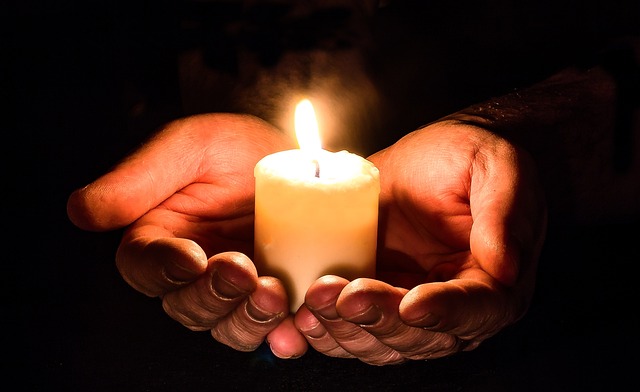Orthodox Churches are known for their rich history, beautiful architecture, and spiritual significance. Many people wonder if these churches are always open for visitors and worshippers. In this article, we will explore the accessibility of Orthodox Churches and whether they are open to the public at all times.
Table of Contents
The Significance of Open Doors in Orthodox Churches
Are Orthodox Churches Always Open?
If you’ve ever walked past an Orthodox church, you may have noticed that the doors are often wide open. This is not a coincidence or a mere architectural choice. In fact, the open doors of Orthodox churches hold great significance and play a vital role in the spiritual life of the Orthodox faithful.
One of the primary reasons why Orthodox churches keep their doors open is to welcome all who enter. Unlike some other religious traditions that may have restricted access to their places of worship, Orthodox churches strive to be inclusive and inviting. The open doors symbolize the open arms of the church, ready to embrace anyone who seeks solace, guidance, or simply a quiet place for reflection.
The open doors also serve as a reminder of the open invitation extended by God to all people. In the Orthodox tradition, it is believed that God’s love and grace are available to everyone, regardless of their background or circumstances. By keeping the doors open, Orthodox churches emphasize this universal invitation and encourage people to come and experience the presence of God firsthand.
Furthermore, the open doors of Orthodox churches are a visual representation of the Orthodox understanding of the church as a bridge between heaven and earth. In Orthodox theology, the church is seen as a sacred space where the divine and the human meet. By leaving the doors open, Orthodox churches create a physical and symbolic connection between the earthly realm and the heavenly realm.
The open doors also serve a practical purpose. Orthodox churches are often adorned with beautiful icons and frescoes that depict scenes from the Bible and the lives of the saints. These sacred images are not merely decorative but are believed to be windows into the spiritual realm. By keeping the doors open, Orthodox churches allow passersby to catch a glimpse of these sacred images and perhaps be inspired or moved by them.
It is important to note, however, that while Orthodox churches strive to keep their doors open as much as possible, there are times when the doors may be closed. This is usually during the celebration of the Divine Liturgy, the central worship service of the Orthodox Church. During this time, the doors are closed to create a sense of reverence and to maintain the focus on the sacred mysteries taking place within the church.
In addition, there may be other occasions when the doors are closed for practical reasons, such as maintenance or security concerns. Nevertheless, even when the doors are closed, Orthodox churches still welcome visitors and encourage them to come back at a more opportune time.
In conclusion, the open doors of Orthodox churches hold great significance and reflect the inclusive and welcoming nature of the Orthodox tradition. They symbolize the open invitation extended by God to all people and serve as a reminder of the church’s role as a bridge between heaven and earth. While there may be times when the doors are closed, Orthodox churches always strive to create an atmosphere of hospitality and invite all who enter to experience the presence of God. So, the next time you pass by an Orthodox church with its doors open, don’t hesitate to step inside and discover the beauty and spirituality that awaits you.
Understanding the Role of Orthodox Church Services

Are Orthodox Churches Always Open?
If you’ve ever driven past an Orthodox church and wondered if it’s always open, you’re not alone. The answer to this question is not as straightforward as you might think. While Orthodox churches are indeed places of worship, they are not always open to the public. Understanding the role of Orthodox church services can help shed some light on this matter.
Orthodox churches are known for their rich history and beautiful architecture. They serve as a gathering place for Orthodox Christians to come together and worship. However, unlike some other Christian denominations, Orthodox churches do not have regular hours of operation like a store or a museum. Instead, they are open for specific services and events.
The primary purpose of an Orthodox church is to provide a sacred space for worship. This means that the church is open during scheduled services, such as Divine Liturgy, Vespers, and Matins. These services are typically held on Sundays and major feast days. During these times, the church doors are open, and anyone is welcome to attend and participate in the worship.
Outside of these scheduled services, Orthodox churches may not be open to the public. This is because the church is seen as a holy place, and it is important to maintain a sense of reverence and respect. The church may be closed to allow for private prayer, sacraments, or other religious activities that are not open to the general public.
It’s also worth noting that Orthodox churches may have additional restrictions on access due to their cultural and historical significance. Some churches may require visitors to dress modestly or cover their heads as a sign of respect. Others may have limited access to certain areas or require permission to enter. These rules and regulations vary from church to church, so it’s always a good idea to check before visiting.
So, if you’re interested in visiting an Orthodox church, how do you know when it’s open? The best way to find out is to check the church’s website or contact the parish office. They will be able to provide you with information on upcoming services and events. You can also look for signs posted outside the church or ask a local Orthodox Christian for guidance.
While it may be disappointing to discover that an Orthodox church is not always open, it’s important to remember that the church is first and foremost a place of worship. By respecting the church’s schedule and guidelines, you can ensure that your visit is meaningful and respectful.
In conclusion, Orthodox churches are not always open to the public. They are primarily open during scheduled services and events, which are the core of Orthodox worship. Outside of these times, the church may be closed for private prayer and religious activities. It’s important to check the church’s schedule and guidelines before visiting to ensure a respectful and meaningful experience.
Exploring the Tradition of Continuous Worship in Orthodox Churches
Are Orthodox Churches Always Open?
If you’ve ever driven past an Orthodox church late at night and noticed the lights on, you might have wondered if these churches are always open. The answer is yes, Orthodox churches are known for their tradition of continuous worship. This tradition dates back centuries and is an integral part of the Orthodox faith.
One of the key aspects of Orthodox Christianity is the belief in the real presence of Christ in the Eucharist. This belief is so central to the faith that Orthodox Christians strive to maintain a constant connection with God through prayer and worship. This is why Orthodox churches are open for worship 24/7, allowing believers to come and pray at any time.
The practice of continuous worship in Orthodox churches is rooted in the early Christian Church. In the early centuries, Christians would gather in homes or secret locations to worship and celebrate the Eucharist. As Christianity became more accepted and churches were built, the tradition of continuous worship continued. Orthodox Christians believe that by keeping the doors of the church open, they are inviting all people to come and experience the presence of God.
Walking into an Orthodox church at any time of the day or night can be a powerful experience. The flickering candles, the smell of incense, and the icons adorning the walls create an atmosphere of reverence and peace. It is a place where one can escape the noise and busyness of the world and find solace in the presence of God.
While Orthodox churches are always open for worship, it’s important to note that not all areas have 24/7 access to the church building. In some cases, the church may be located in a neighborhood where safety concerns prevent it from being open at all hours. Additionally, smaller parishes may not have the resources to keep the church open around the clock. However, even in these cases, Orthodox churches strive to provide regular opportunities for worship and prayer.
The practice of continuous worship is not limited to the physical church building. Orthodox Christians are encouraged to maintain a spirit of prayer and worship throughout their daily lives. This means that even when they are not in the church building, they can still connect with God through prayer and reflection. The church building serves as a physical reminder of the continuous worship that is happening both inside and outside its walls.
In conclusion, Orthodox churches are known for their tradition of continuous worship. This practice stems from the belief in the real presence of Christ in the Eucharist and the desire to maintain a constant connection with God. While not all Orthodox churches have 24/7 access, the spirit of continuous worship extends beyond the physical building. Orthodox Christians strive to live a life of prayer and worship, whether they are inside the church or out in the world. So, the next time you drive past an Orthodox church late at night and see the lights on, remember that it is a place where believers can always find solace and connect with God.
The Impact of Openness on Community Engagement in Orthodox Churches
Are Orthodox Churches Always Open?
When it comes to community engagement, the openness of Orthodox churches plays a significant role. The question arises: are Orthodox churches always open? The answer is not as straightforward as one might think. While the primary purpose of a church is to provide a place for worship and spiritual growth, it is also essential for it to be accessible to the community it serves.
Orthodox churches are known for their rich traditions and deep-rooted history. They are often seen as sacred spaces, where believers can come together to pray, reflect, and find solace. However, this perception of exclusivity can sometimes hinder community engagement. If a church is only open during specific hours for religious services, it may limit its ability to connect with the broader community.
Recognizing the importance of community engagement, many Orthodox churches have taken steps to increase their accessibility. They have realized that being open to the community is not only beneficial for the church but also for the individuals who may be seeking spiritual guidance or a sense of belonging.
One way in which Orthodox churches have embraced openness is by extending their hours of operation. Instead of being open solely for religious services, they have started to open their doors during weekdays, allowing people to visit, explore, and experience the church’s beauty and serenity. This change has made it easier for individuals to connect with the church outside of traditional worship times.
Moreover, some Orthodox churches have gone a step further by organizing community events and activities. These events range from charity drives and food banks to cultural festivals and educational programs. By hosting such events, churches create opportunities for people to engage with the community and learn more about the Orthodox faith. This not only fosters a sense of inclusivity but also helps dispel any misconceptions or stereotypes that may exist.
In addition to physical openness, Orthodox churches have also embraced the digital age to enhance community engagement. Many churches now have websites and social media platforms where they share information about their services, events, and teachings. This online presence allows individuals to connect with the church, even if they are unable to visit in person. It also provides a platform for dialogue and discussion, further strengthening the sense of community.
While the efforts made by Orthodox churches to increase their openness are commendable, it is essential to acknowledge that there may be limitations. Some churches, due to their size or location, may face logistical challenges in extending their hours or organizing community events. However, even in such cases, there are still ways to foster community engagement.
For instance, churches can collaborate with other community organizations or participate in interfaith initiatives. By working together, they can create a network of support and engagement that benefits everyone involved. Additionally, churches can encourage their members to actively participate in community service projects or volunteer at local organizations. These acts of service not only benefit the community but also provide an opportunity for individuals to live out their faith.
In conclusion, the impact of openness on community engagement in Orthodox churches cannot be overstated. While not all churches may be open at all times, many have recognized the importance of accessibility and have taken steps to increase their openness. By extending their hours, organizing community events, and embracing the digital age, Orthodox churches are creating opportunities for individuals to connect with the church and the broader community. Whether through physical or virtual means, the goal remains the same: to foster a sense of inclusivity and provide a space where individuals can find solace, guidance, and a sense of belonging.
Conclusion
In conclusion, Orthodox churches are not always open. The opening hours of Orthodox churches may vary depending on the specific church and its location. It is advisable to check the schedule or contact the church authorities beforehand to ensure that the church is open for visitation or worship.
For licensing reasons, we must provide the following notice: This content was created in part with the help of an AI.



